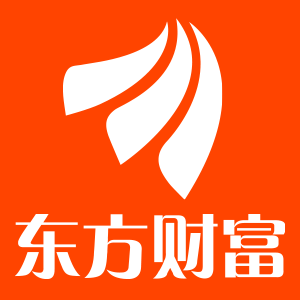Japanese Brand Joins Tesla’s Charging Camp in North America, Posing Challenges for Chinese New Energy Exports
In a significant move towards standardization, Nissan Motor announced on July 19 that it has reached an agreement with Tesla to adopt the Tesla Charging Standard (NACS). This development makes Nissan the first Japanese automaker to support NACS in its upcoming products. With more car manufacturers participating in Tesla’s charging technology, it is gradually becoming an “industry standard.” However, this trend also brings new challenges for Chinese new energy car brands seeking to expand overseas.
Earlier this month, Mercedes-Benz also made an announcement stating that Mercedes-Benz owners can utilize Tesla supercharging stations in North America starting in 2024. Companies such as Volkswagen, Stellantis, and Volvo have already reached agreements with Tesla regarding access to its supercharging network. Several other automotive giants in North America, including Ford, General Motors, and Rivian, are also set to join Tesla’s supercharging network.
Currently, there are five major charging standards globally, namely the Chinese GB/T standard, the North American CCS1 standard, the European CCS2 standard, the Japanese CHAdeMO standard, and the Tesla NACS standard. The European CCS2 standard shares similarities with the North American CCS1 standard and was jointly launched by the Society of Automotive Engineers (SAE) and the European Automobile Manufacturers Association (ACEA) with the participation of major automakers from Germany and the United States. The once-prominent CHAdeMO Japanese standard has seen a decline due to the slow progress made by Japanese brands Toyota and Honda in the electric vehicle market. Currently, CHAdeMO charging stations are predominantly found in Europe, the United States, and South Korea, excluding Japan. However, Nissan’s latest official announcement indicates that starting in 2024, Nissan’s flagship Ariya model will come equipped with NACS charging adapters.
The increasing adoption of NACS is driven by the reputation of Tesla’s charging technology as being more reliable in the industry. Additionally, Tesla boasts over 17,700 fast-charging stations in North America, significantly surpassing the total number of charging stations using the CCS standard. The U.S. Department of Energy reported that Tesla’s Superchargers account for approximately 60% of all fast-charging stations in the United States.
Julian Blissett, Executive Vice President of GM and President of GM China, explained GM’s decision to participate in NACS, stating that there are fundamental differences between the United States and China regarding the construction of charging networks. Blissett noted that due to lesser investments made by the U.S. government in public charging infrastructure, various companies have worked together to develop a unified standard.
Although Chinese new energy car companies have yet to enter the North American market, they must plan ahead given Tesla’s inclination to dominate the “charging world” in North America.
Fan Bin, Director of the Charging Technology Department of the New Energy Vehicle Inspection Center, China Automobile Research Institute, raised concerns about the discrepancies between overseas and domestic charging stations in terms of product certification and interface standards. He emphasized that charging facilities, as infrastructure, could create barriers and affect market competition.
Chinese car companies, especially those focusing on new energy vehicles, are rapidly expanding their overseas presence due to factors such as policy support and improvements in the industrial chain. According to data from the China Association of Automobile Manufacturers, auto companies exported 2.14 million vehicles in the first half of this year, representing a year-on-year increase of 75.7%. Furthermore, new energy vehicles saw a year-on-year increase of 1.6 times, with 534,000 vehicles exported. According to AlixPartners, a global market management consulting company, Chinese brands are projected to capture about 30% of the global market by 2030 and achieve significant success in emerging markets and Europe. This includes a 39% market share in Africa and the Middle East and a 15% market share in Europe. While the current North American market share is zero, it is expected to increase to 4%.
The ongoing charging standard dispute will impact related industry chains. Xiangshan, a supplier company, has informed reporters that its products have already entered the European market, including countries like Germany, Hungary, and Austria. Xiangshan’s products have also established collaborations with local partners to provide charging solutions for public and private sectors. Efforts are underway to advance the American Standard certification for Xiangshan’s new energy products.
A spokesperson for Xiangshan shares emphasized that although Tesla’s charging standard has become the de facto industry standard in North America, other regions may not necessarily adopt it. As a result, future international competition could revolve around charging standards. To gain a competitive advantage, car companies need to invest more in research and development, promote charging technology, enhance charging efficiency, reduce costs, and collaborate with industry partners to stimulate the widespread adoption and development of electric vehicle charging infrastructure. Fan Bin believes that as the new energy vehicle sector continues to grow rapidly, having a standardized charging standard will significantly aid Chinese new energy vehicles in expanding overseas.
Source: Financial Associated Press
